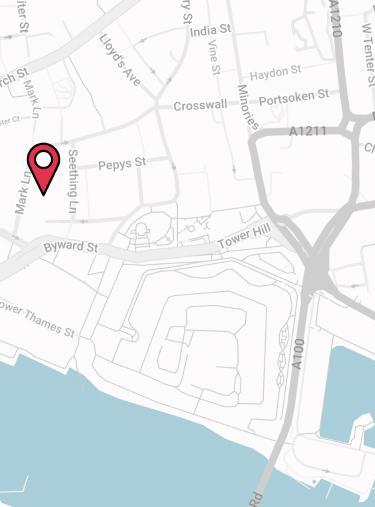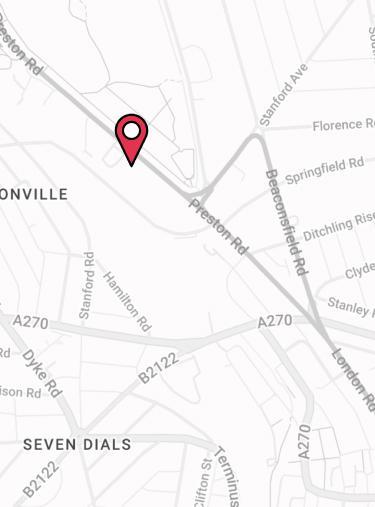
Difference Between Excepted and Registered Group Life Schemes
There are two kinds of Group Life Insurance schemes: Registered, and Excepted. There’s a big difference between the two, as they refer to the kind of trust that the policy will be placed into. Your choice will impact how a life insurance claim is managed if an employee dies. It will also have tax charge implications.
This can be a complicated area, as it’s subject to particular UK legislation. And if you’re not familiar with trusts and insurance jargon, it can be a tricky area. Our guide will explain all, including:
- The difference between Registered and Excepted Group Life Schemes
- How tax charges are impacted, specifically for inheritance and income tax
- The pension lifetime allowance.
Before we get into the details, we need to understand what Registered and Excepted Group Life Insurance schemes are.
What Is Group Life Insurance?
Group Life Insurance is also known as Death in Service cover. It’s a way to provide life protection for a group of employees working for a single employer.
- Most insurers can provide life cover for groups as small as 2 or 3 employees. This makes Group Life Insurance schemes very accessible for start-ups and large corporations alike
- If a member dies while the policy is in effect, the Group Life Insurance makes a lump sum payout. The funds are handled in a specially drafted trust before being paid to the employee’s family
- You can insure employees for a multiple of their salary; between 2 and 4 times their annual salary is typical. Or you can cover each employee for a fixed lump sum benefit.
Group Life Insurance is a highly valued benefit among employees and is central to any good employee benefits package. It can help attract new staff and retain existing employees while showing your duty of care as an employer.
What Is A Registered Group Life Scheme?
Registered Group Life Insurance policies get their name from the fact they are registered with HMRC. Most Group Life policies are set up this way. It simply means that they fall under pension legislation, rather than life insurance legislation.
With a Registered scheme, if an employee dies, the claim is combined with other HMRC-registered schemes, such as pension schemes. These benefits count towards an individual’s Pension Lifetime Allowance.
IMPORTANT NOTICE 🧐
The pension lifetime allowance (LTA). was abolished as of 6th April 2023.
What Is The Pension Lifetime Allowance?
The Pension Lifetime Allowance (pension LTA) is the maximum amount you can receive from pension arrangements before paying tax on them. In the year 2025/26, the pension LTA stands at £1,073,100.
For example, upon an employee’s death, their pension pot and Life Insurance claim will both form part of their pension LTA. Any funds above the tax-free allowance of £1,073,100 are subject to a tax known as the Lifetime Allowance Charge. This is charged at a rate of 55%.
SPECIALIST TIP! 🤓
Depending on the age of employees, the Pension LTA threshold of £1,073,100 will often be enough. The majority of people aren’t likely to exceed this amount with HMRC-registered benefits.
Can Registered Schemes Affect An Employees Lifetime Allowance?
Entering into a Registered Group Life scheme could impact an employee’s Lifetime Allowance (LTA) protection. LTA protection provides them with a higher allowance before being subject to Lifetime Allowance tax charges.
People who have protected their Lifetime Allowance (LTA) by “locking in” the amount available in previous years are unable to join another registered scheme. If they do, they’ll lose their protection.
What Is An Excepted Group Life Assurance Scheme?
An Excepted Group Life scheme falls under life insurance legislation. This is a key difference from Registered policies, which fall under pension legislation.
As such, any benefits claimed from an Excepted Group Life Protection (EGLP) scheme will not be subject to the Pension Lifetime Allowance.
There are several reasons why an Excepted scheme might be a suitable choice:
- Higher earners, and / or those who’ve built up larger pensions are more likely to max out their Pension LTA. An Excepted scheme lets them use their allowance for their pension savings, rather than combining it with Group Life Insurance
- If certain employees already have Lifetime Allowance protection. As mentioned above, entering into a new Registered scheme will jeopardise that protection
- In cases where there are self-employed equity partners or LLP members who want to take out Group Life Insurance for themselves, but not their staff.
Legislation doesn’t permit equity partners and LLP members to set up a registered scheme only for themselves. They could join a registered scheme for their employees, however, there are 2 significant issues with doing so:
- The scheme rules will be available to all people included in it. This means employees can find out the benefit level for equity partners and LLP members
- Self-employed equity partners and LLP are often well paid and have larger pension investments. As such, they could exceed the Pension Lifetime Allowance on a Registered scheme.
So, Excepted Group Life Insurance schemes are often preferable for self-employed equity partners and LLP members.
How To Establish An Excepted Group Life Scheme
If you’re looking to establish an Excepted scheme yourself, there are certain stipulations:
- You must establish a discretionary trust deed. This will be treated as a relevant property trust, with the only asset being the group life insurance policy
- The policy must cover at least two lives
- It must provide a cash lump sum, payable on the death of a person included in the policy before age 75
- The method to reach the lump sum death benefits must be the same for all members the scheme covers
- The policy must have no surrender value. The only other payment you’ll receive from the policy is a return of premiums. This will take place where premiums have been paid in advance for an unexpired period of risk
- Provide evidence that the lump sum benefits are paid to an individual or charity beneficially entitled to them. The claim can also be paid to a trustee to ensure the beneficiary receives the payout
- Tax avoidance may not be the main purpose, or one of the main purposes, for establishing an Excepted scheme.
Why Use A Group Life Excepted Scheme?
The main benefit to using an Excepted scheme is that a payout won’t count towards an individual’s Pension Lifetime Allowance. Therefore, it won’t impact any Lifetime Allowance Protection an employee already has in place.
One drawback of using an Excepted trust is that it offers less flexibility. Many business owners want to provide greater cover for longer-serving or more senior employees. But with an Excepted trust, you cannot insure different categories of employees for different amounts of cover.
Instead, the group life policy will need to cover all lump sum death benefits on the same basis. For instance, all employees will receive the same multiple of their salary, or the same fixed sum.

Most Insurers offer Master Trusts for Registered and Excepted Group Life schemes. This saves you a lot of the admin, however, the documentation can still be complicated.
Our specialist consultants at Drewberry can support with clear guidance on navigating the paperwork. We can ensure everything is set up correctly and smoothly on your behalf.
Nadeem Farid
Head Of Health & Wellbeing
Inheritance Tax And Excepted Group Life Schemes
As mentioned above, Excepted group life schemes require a discretionary trust when the policy is first set up. It’s also important to remember that Excepted group life policies fall under Life Insurance legislation.
For these reasons, Excepted schemes are subject to the usual Inheritance Tax that applies to all discretionary trusts. This could, in certain rare circumstances, give rise to:
- Entry Charges: A charge when something is placed into the trust
- Periodic Charges: A charge after each ten-year anniversary of the trust
- Exit Charges: A charge when an asset leaves the trust.
For Excepted Life Insurance schemes, the only asset permitted in the trust is the policy itself. It’s unlikely that HMRC will deem this to have any value if all members were of good health when the policy was placed into the trust.
Entry Charges
An entry charge could apply to the policy if an employee is terminally ill. This is often an actuarial value of 20% of any value HMRC deems the trust to have.
Periodic Charges
As we mentioned, the trust is unlikely to be deemed as having any value unless:
- A member dies close to a 10-year anniversary, and the death benefit are due, held by the trust, or not yet released to the beneficiaries
- A member is terminally ill at a 10-year anniversary, in which case an actuarial value of 6% may be charged.
If a periodic charge is ever made, it will be a percentage of the value of the asset. In these cases, it will generally be 6% of the value.
Exit Charges
If HMRC deems the trust to have value on its final 10-year periodic anniversary, an exit charge may apply. However, if the charge at the previous 10-year anniversary was nil, there will also be a nil-charge for anything leaving the trust before the next tenth anniversary.

During the first 10 years of the policy, the only value added to the trust would be a proportional return of premiums. This would apply when cover has been paid for in advance and an employee dies.
An exit charge wouldn’t apply here though, as the policy will have no surrender value.
Joseph Toft
Senior Employee Benefits Consultant
Are Payouts Subject To Individual Inheritance Tax?
As the trustees handle the death benefit, these are not treated as part of the deceased member’s estate. The Life Insurance payout is therefore not subject to an individual inheritance tax charge.
In general, trusts are not entirely free from inheritance tax. Inheritance tax is usually charged at 20% of the value of assets placed into the trust. HMRC rarely deems Excepted Group Life schemes as having any value, however, so these charges will generally not apply.
Registered Vs Excepted Group Life Schemes
To highlight the key differences between a Registered and Excepted Group Life Scheme, we’ve put together a comparison table below.
Registered Vs Excepted | Registered | Excepted |
|---|---|
Easy to set up, with very few HMRC reporting requirements | A master trust needs to be completed when the policy is set up |
Employers can claim tax relief on the premiums | In principle, tax relief is available for an employee-financed portion of premiums, such as salary sacrifice |
Registered trusts can pay dependent’s pension benefits | Only a lump sum can be insured under an Excepted Group Life Insurance scheme |
You can set different benefit amounts for employees at different levels of service or seniority | A separate scheme needs to be set up for each different benefit level |
Legislation is well-documented for registered schemes. HMRC also provides support for employers and trustees | Excepted group life protection schemes are less clear, and employers may need to pay for specific advice |
No exit or periodic charges | Exit and periodic charges may apply |
Forms part of pension lifetime allowance (LTA) | Doesn’t form part of pension lifetime allowance (LTA) |
Get Specialist Group Life Insurance Advice
We appreciate that Registered and Excepted Group Life schemes can be a complicated topic. Registered schemes are the most popular kind. This is because they have clear HMRC rules and are easy to set up compared to excepted schemes.
Excepted schemes are more complicated, and the HMRC rules surrounding them are less clear. But, they can be a great option for high earners, or employees with large pensions. Not only this, they might also be suitable for covering only groups of self-employed equity partners, or LLP members.
As such, there’s a lot to consider, from the level of death benefit you want to offer, to members’ Pension Lifetime Allowance.
Our specialist consultants at Drewberry can advise on all these matters and more. If you’re considering Group Life Insurance, or other employee benefits, get in touch with us today.
Why Speak to Us?
Employee benefits can be a headache. But our specialists do this day-in, day-out, offering first class service when you need it most. Here’s why you should talk to us:
- Award-winning independent employee benefits consultants, working with leading UK insurers and benefit providers
- Assigned specialist on hand to help – every step of the way
- 4074 and growing independent client reviews rating us at 4.92 / 5
- Authorised and regulated by the Financial Conduct Authority. Find us on the financial services register
- Claims support when you need it most.
If you need help deciding whether an excepted or a registered Group Life Insurance scheme is right for you, then let us know.
Please don’t hesitate to pop us a call on 02074425880 or email help@drewberry.co.uk.
Contact Us
125-135 Preston Road
Brighton
BN1 6AF
Cookies
Drewberry™ uses cookies to offer you the best experience online. By continuing to use our website you agree to the use of cookies including for ad personalization.
If you would like to know more about cookies and how to manage them please view our privacy & cookie policy.








